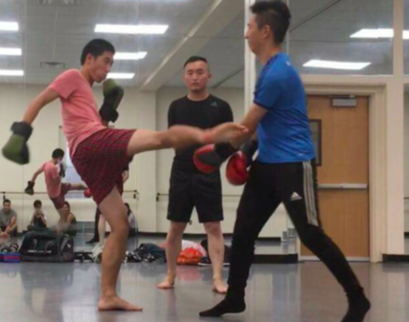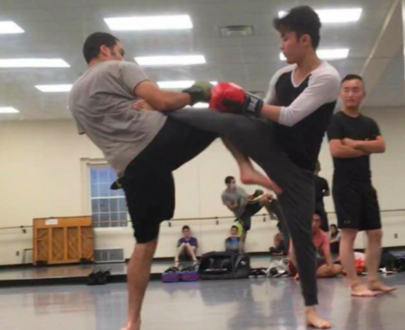By Josh Tolentino
Staff Writer
The Kung-Fu club takes a modern approach to an ancient practice. Club president Zhexu Zheng, a junior political science major, incorporated the essentials of different martial arts styles to create a style that is practical and easy to learn.

Zheng practices various forms of Kung-Fu, having trained for five years in Jeet Kune Do in China. He founded the club in 2016 under the objective to help others better themselves. Despite the uniqueness of his teaching style, Zheng is adamant that his shared knowledge be used correctly. “We combine the essentials. It is important to understand the martial spirit [and] the morality. You should be a good person,” Zheng said.
The club is built around the idea of humility, to never use what you know unless it’s necessary. One of the core ideas of Kung-Fu “is not about training yourself for self-defense,” according to Zheng. It’s to help build confidence and discipline. The club ultimately focuses on the betterment of body and mind.
The club’s practice is drawn from Bruce Lee’s approach to mixed martial arts and the methods he used in Jeet-Kune-Do. The first hour of the club focuses on conditioning. This includes stretching and practicing stances that help build the foundation for techniques taught later on.

“The whole idea is that by the end of the semester everyone will be fit and ready to go,” said vice president Carlo Lamorelle, a senior history major. Lamorelle leads the club through conditioning.
Through demonstrations, Zheng breaks down certain strikes, traps and kicks that can be used in a physical altercation. In the last hour the club meets, students apply what they learned through sparring. Students suit up in gloves and mouth guards and use what they learned in a controlled environment.
Kung-Fu may seem complex and the idea of sparring rather intimidating. “No matter what level or what style, we focus on building the engines,” Zheng said. Zheng’s primary focus is strengthening basics skills which leads to mastering more complicated techniques.
Students in the club develop as combatants. Zheng took something complicated and made it accessible to anyone interested; keeping the tradition alive while also instilling the art form’s practicality.
The club meets every Saturday from 2 p.m. to 5 p.m. in the dance studio in Humanities 020.




Be First to Comment